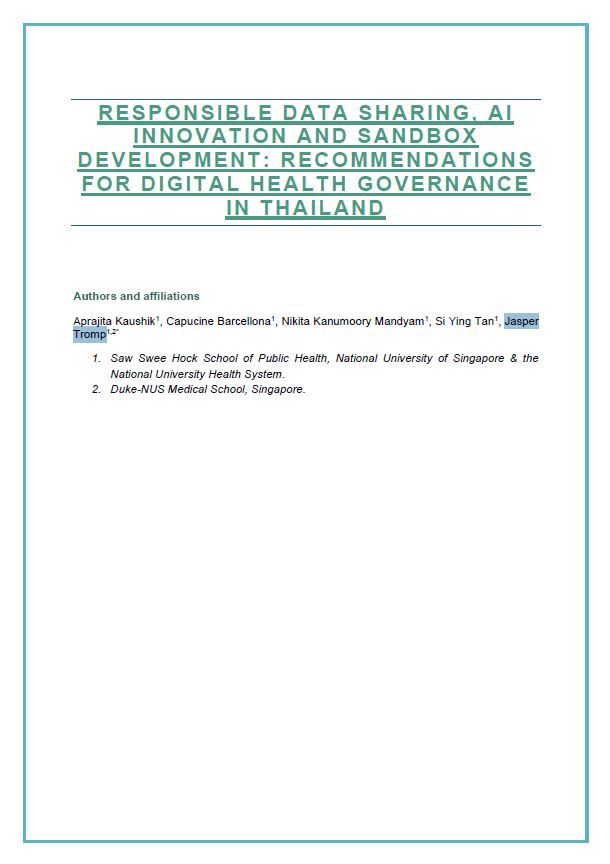
Author:
Jasper Tromp, National University of Singapore
Introduction:
Thailand’s digital health landscape is evolving with efforts to embrace technology and leverage its potential benefits. The country has been making strides in digital health readiness, as reflected in its ranking of 59th globally in the Government AI Readiness Index 2021 and 9th in East Asia. However, several barriers and challenges exist in the digital health space.
One of the primary challenges is the fragmented nature of healthcare service provision, affecting differences in data architecture, standards, and collection. Manual data management and the persistence of paper-based electronic health record systems also limit efficient data sharing and interoperability. Limited resources pose a significant barrier, with uneven human, technical, and financial resource distribution across healthcare institutions. High hardware and software acquisition, installation, and maintenance costs further impede engagement in quality data collection and sharing, particularly for smaller clinics and hospitals. Thailand faces a lack of understanding of the value of data and the importance of data security and privacy. Health literacy issues and confusion around data-sharing parameters also contribute to the challenges. Additionally, the absence of precise data-sharing regulations and guidelines at the political and policy levels creates uncertainty and hampers progress.
While Thailand has made progress in its digital health landscape, addressing barriers related to data integration, standardization, resource allocation, and regulations is crucial to unlocking digital health initiatives’ full potential and achieving improved healthcare outcomes.
Read this article for more information about the AI for Social Good project and the research in Thailand.
